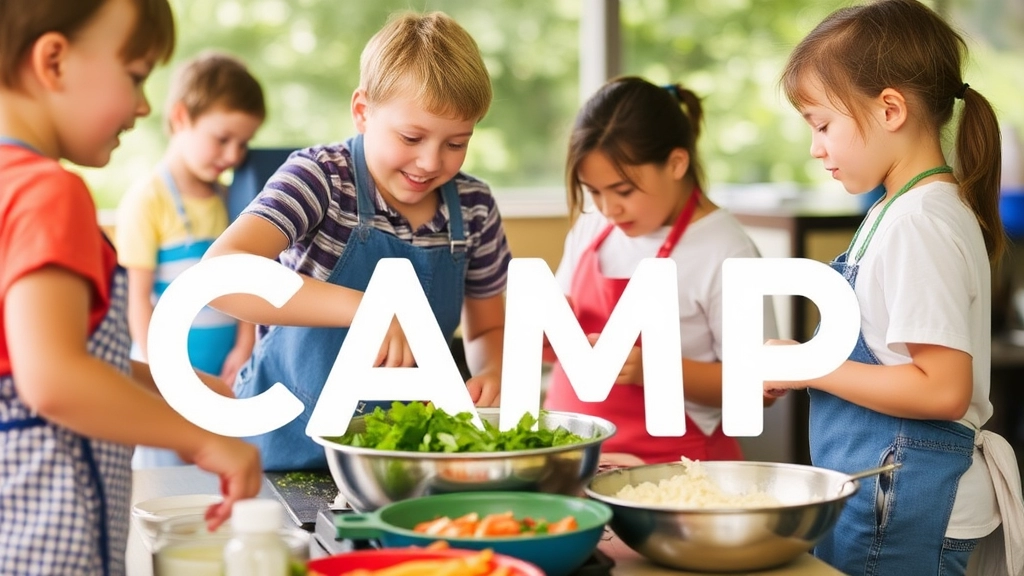Are you ready to embark on a culinary adventure this summer?
Cooking summer camps offer a unique blend of fun, learning, and skill-building that can transform young chefs into kitchen maestros. From mastering basic knife skills to exploring international cuisines, these camps cater to various age groups and skill levels, ensuring that every participant finds their niche and thrives.
In this article
we’ll dive into the different types of cooking summer camps available, the age groups and skill levels they cater to, and the most popular locations for these camps. We’ll also explore the daily activities and schedules, the numerous benefits of attending, and tips on choosing the right camp. Plus, we’ll cover essential safety measures, costs and scholarships, packing tips, and share inspiring success stories from past campers. Ready to get cooking? Let’s dive in!
Types of Cooking Summer Camps
So, you’re thinking about sending your kid to a cooking summer camp? Or maybe you’re a teen looking to up your culinary game? Awesome choice! Cooking summer camps are a fantastic way to blend fun, learning, and some serious kitchen skills. But before you dive in, let’s break down the types of cooking summer camps out there. Trust me, this can make or break your experience.
Traditional Cooking Camps
What they are: These camps are the bread and butter (pun intended) of cooking summer camps. They cover a bit of everythingâbasic cooking techniques, different cuisines, and even some baking.
Who they’re for: Ideal for beginners and intermediate cooks. If you don’t know your spatula from your whisk, this is a good starting point.
What to expect:
- Basic knife skills
- Simple recipes
- Introduction to various cuisines
- Fun, interactive cooking games
Baking and Pastry Camps
What they are: If you’ve got a sweet tooth or a passion for pastries, these camps focus exclusively on baking. From cookies to croissants, you’ll learn it all.
Who they’re for: Perfect for those who want to specialise in baking. Great for intermediate to advanced bakers.
What to expect:
- Baking fundamentals
- Pastry techniques
- Cake decorating
- Dessert plating
Farm-to-Table Camps
What they are: These camps focus on the entire food journeyâfrom growing the ingredients to cooking them. Think of it as a holistic approach to cooking.
Who they’re for: Ideal for those interested in sustainable cooking and organic ingredients. Good for all skill levels.
What to expect:
- Visits to local farms
- Organic cooking techniques
- Seasonal recipes
- Understanding food sourcing
International Cuisine Camps
What they are: Want to travel the world without leaving the kitchen? These camps focus on different international cuisines, teaching you the unique flavours and techniques from various cultures.
Who they’re for: Great for adventurous eaters and those who want to expand their culinary horizons. Suitable for intermediate to advanced cooks.
What to expect:
- Recipes from around the world
- Cultural cooking techniques
- Ingredient sourcing tips
- Cooking with exotic spices and herbs
Advanced Culinary Camps
What they are: These camps are for the serious young chefs who might be considering a career in the culinary arts. They go beyond basic cooking to delve into advanced techniques and professional kitchen skills.
Who they’re for: Designed for advanced cooks and teens considering culinary school.
What to expect:
- Advanced knife skills
- Sous-vide cooking
- Molecular gastronomy
- Plating and presentation
Specialty Diet Camps
What they are: These camps focus on cooking for specific dietary needsâvegan, gluten-free, keto, you name it.
Who they’re for: Perfect for those with dietary restrictions or anyone interested in alternative diets. Suitable for all skill levels.
What to expect:
- Specialised recipes
- Nutritional education
- Ingredient substitutions
- Cooking techniques for specific diets
Family Cooking Camps
What they are: These camps are designed for families to cook together. It’s a great way to bond and learn new skills as a team.
Who they’re for: Families who want to spend quality time together while learning to cook. Suitable for all skill levels.
What to expect:
- Family-friendly recipes
- Team cooking challenges
- Parent-child cooking lessons
- Fun, collaborative activities
Age Groups and Skill Levels Catered
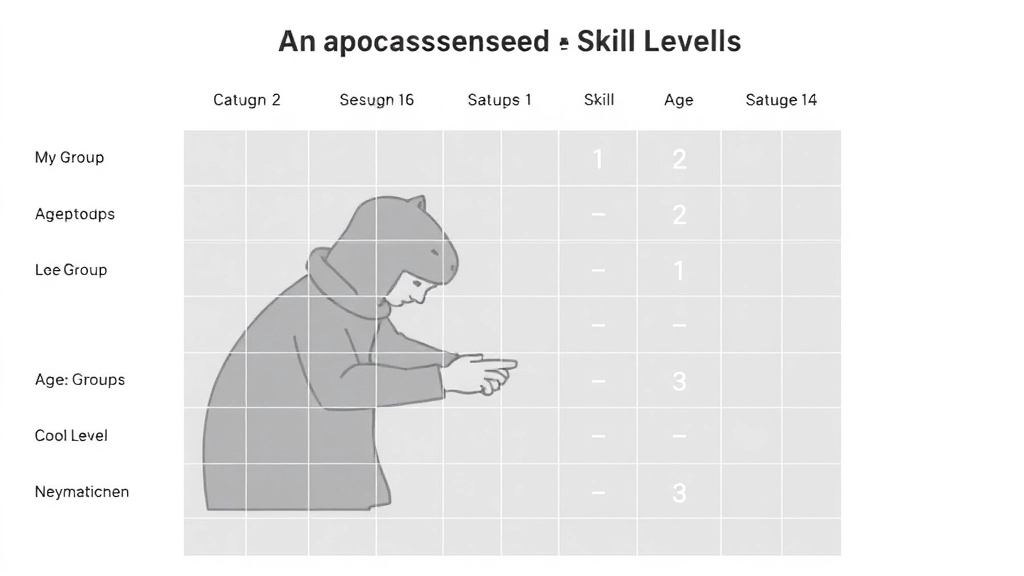
Wondering if a cooking summer camp is right for your child?
You’re not alone.
Many parents worry if their kids are too young or too old, or if their skills are up to par.
Let’s break it down.
Cooking summer camps cater to a wide range of age groups and skill levels.
From little ones just learning to crack an egg to teens perfecting their soufflés, there’s something for everyone.
Here’s how it shakes out:
Age Groups:
- Young Chefs (Ages 5-8):
- Basic kitchen skills
- Simple recipes
- Fun, hands-on activities
- Junior Cooks (Ages 9-12):
- Intermediate techniques
- Introduction to kitchen safety
- More complex recipes
- Teen Gourmets (Ages 13-17):
- Advanced cooking methods
- Nutritional education
- Specialty cuisines
Skill Levels:
- Beginners:
- No prior experience needed
- Focus on fundamentals
- Lots of guidance
- Intermediate:
- Some cooking knowledge
- Building on basics
- More independence
- Advanced:
- Experienced young chefs
- Mastering intricate recipes
- Leadership opportunities
Real Talk:
Kids develop at their own pace.
Some might be ready for advanced techniques at a younger age, while others might need more time with the basics.
Pro Tip:
When choosing a camp, look for ones that offer a variety of classes tailored to different skill levels.
This way, your child can progress at their own speed.
Why This Matters:
Matching the right age group and skill level ensures your child gets the most out of their experience.
They’ll feel confident, engaged, and excited to learn.
Final Thoughts:
Choosing the right cooking summer camp isn’t just about age or skill.
It’s about finding a camp that meets your child’s unique needs and interests.
Ready to get started?
Check out our guide on how to choose the right cooking summer camp for more tips and insights.
Keyword Recap:
From young chefs to teen gourmets, cooking summer camps cater to all age groups and skill levels.
Your child will thrive in an environment tailored to their abilities.
Happy cooking!
Popular Locations for Cooking Summer Camps
Wondering where the best cooking summer camps are? You’re not alone. Picking the right spot can make or break your summer experience. Let’s dive into some of the hottest locations where you can sharpen your culinary skills.
Top Spots to Get Your Cook On
- California: Think about itâCalifornia is foodie heaven. From San Francisco’s gourmet scene to LA’s trendy eats, cooking camps here offer a taste of everything. Plus, the weather is unbeatable.
- New York: The Big Apple isn’t just about skyscrapers and Broadway. It’s a melting pot of cultures, which means diverse culinary experiences. Imagine learning to cook Italian one day and sushi the next.
- Texas: BBQ, Tex-Mex, and Southern comfort food. Texas cooking camps will have you mastering the grill and perfecting your chili recipe. Everything’s bigger in Texas, including the flavours. For more tips on summer camping in Texas, check out our guide on Summer Camping Hotspots in Texas.
- Florida: Sunshine and seafood. Florida camps often include fresh, local ingredients. Think about cooking with freshly caught fish or tropical fruits. Plus, beach time post-cooking? Yes, please.
- Vermont: If organic and farm-to-table are your jam, Vermont is your spot. Many camps here are set on beautiful farms where you can pick your ingredients before cooking them. It’s a full-circle experience.
Why These Locations?
- Diverse Culinary Scenes: Each location offers something unique. Whether it’s the fresh seafood in Florida or the diverse cuisines in New York, you’re in for a treat.
- Local Ingredients: Cooking with local ingredients means fresher, tastier dishes. Plus, you get to learn about the local food culture.
- Experience Beyond Cooking: These locations offer more than just cooking. Think beach outings, farm visits, and city tours. You get a full summer experience.
Real Talk: What’s the Catch?
- Travel Costs: Getting to these prime locations might cost a bit more. But think of it as an investment in your culinary education.
- Weather: Consider the season. California and Florida are great year-round, but Vermont might be better in the summer.
- Availability: Popular camps fill up fast. Early registration is key.
My Personal Faves
I’ve had campers rave about their experiences in California and Texas. One camper even said, “I thought I knew BBQ until I went to camp in Texas. It was a game-changer!” It’s stories like these that make me excited about these locations.
So, where will you go to level up your cooking game? Whether it’s the sunny beaches of Florida or the bustling streets of New York, there’s a cooking camp out there with your name on it. For more ideas on fun activities, don’t miss our Summer Camp Ideas for Kids. Happy cooking!
Daily Activities and Schedules
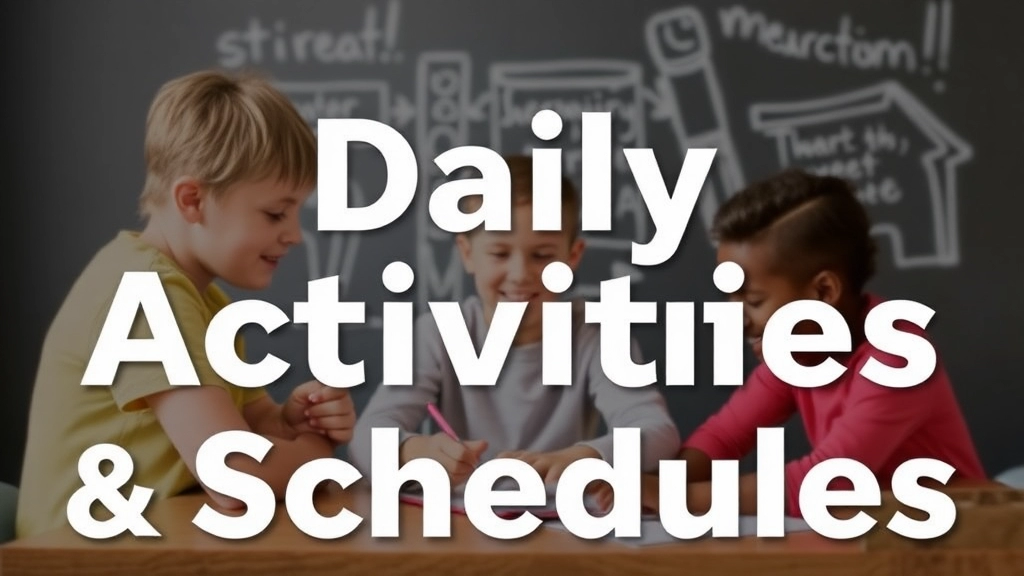
Ever wondered what a day at a cooking summer camp looks like?
Let’s dive into it.
Cooking summer camps aren’t just about cooking; they’re an experience.
Morning Routine:
- Kick-off with Breakfast: We start with a hearty breakfast. Think fresh fruits, cereals, and maybe even a cooking demo to get those creative juices flowing.
- Morning Session: This is where the magic begins. From knife skills to baking basics, we break it down into bite-sized lessons.
Midday Activities:
- Lunch Prep: Campers get hands-on. They prepare their own lunch. It’s all about learning by doing.
- Tasting and Feedback: After lunch, we sit together, taste each other’s creations, and share feedback. It’s like a mini MasterChef session.
Afternoon Fun:
- Special Workshops: Think pasta-making, sushi rolling, or cake decorating. These workshops are designed to spark creativity.
- Guest Chefs: Sometimes, we bring in guest chefs. They share their expertise and maybe even a few trade secrets.
Evening Wrap-Up:
- Dinner Time: Campers work together to prepare a communal dinner. It’s teamwork, fun, and learning all rolled into one.
- Reflection and Relaxation: We end the day with a chill session. Maybe a cooking-themed movie or a casual chat about what we learned.
Weekends and Special Events:
- Field Trips: A visit to a local farm or a food market. It’s about understanding where our ingredients come from.
- Cooking Competitions: Friendly competitions to test skills and have fun. Winners get bragging rights and maybe a small prize.
Why This Schedule Works
It’s structured yet flexible.
Keeps campers engaged and learning.
And most importantly, it’s fun.
Real Stories
Like that time when Sarah, a 12-year-old camper, learned to make her first souffle. She was so proud, she made it again for her family at home. Or when Jake, a teen with zero cooking skills, left camp confident enough to cook a three-course meal.
Benefits of Attending a Cooking Summer Camp
Thinking about sending your kid to a cooking summer camp but not sure if it’s worth it? I get it. You’re probably wondering if it’s just a glorified daycare or if they’ll actually come back with some solid skills. Let’s break it down and see what your kid can really gain from attending a cooking summer camp.
Real-Life Cooking Skills
First off, they’ll learn to cook. Simple as that. But we’re not talking about just making toast or boiling pasta. They’ll get hands-on experience with:
- Basic knife skills: No more hacking away at vegetables like they’re in a horror movie.
- Understanding ingredients: They’ll learn what goes into their food and why it matters.
- Following recipes: A crucial skill that teaches attention to detail and patience.
- Cooking techniques: From sautéing to baking, they’ll cover a wide range of methods.
Boosted Confidence and Independence
Cooking is a life skill, and mastering it can seriously boost a kid’s confidence. Imagine the pride they’ll feel whipping up a meal for the family. Plus, it fosters independence. They’ll learn to handle tasks on their own, which is a huge win for both you and them.
Teamwork and Social Skills
Cooking camps aren’t just about cooking. They’re about working together. Your kid will learn to:
- Collaborate with peers: Cooking often requires teamwork, and they’ll learn to share responsibilities.
- Communicate effectively: Whether it’s asking for help or giving instructions, they’ll get better at talking to others.
- Problem-solving: When things go wrong in the kitchen (and they will), they’ll learn to think on their feet and find solutions.
Exposure to Different Cultures
Many cooking camps offer a variety of cuisines. This exposure to different cultures can be eye-opening. They’ll try new foods, learn about different traditions, and maybe even pick up a few words in another language. It’s like travelling the world without leaving the kitchen.
Healthy Eating Habits
When kids understand what goes into their food, they’re more likely to make healthier choices. Cooking camps often emphasise nutrition, teaching kids about balanced diets and the importance of fresh ingredients. This can lead to lifelong healthy eating habits.
Fun and Creativity
Let’s not forget the fun factor. Cooking is creative. It’s about experimenting and trying new things. Your kid will get to:
- Create their own recipes: They’ll learn the basics and then get to put their own spin on things.
- Decorate and present dishes: Making food look good is an art, and they’ll have a blast doing it.
- Taste and enjoy: The best part is, they get to eat their creations. Who wouldn’t love that?
Long-Term Benefits
The skills and experiences gained at a cooking summer camp can have long-term benefits. They might discover a passion that leads to a career in the culinary arts. Or, at the very least, they’ll have a useful skill that will serve them well throughout their life.
How to Choose the Right Cooking Summer Camp
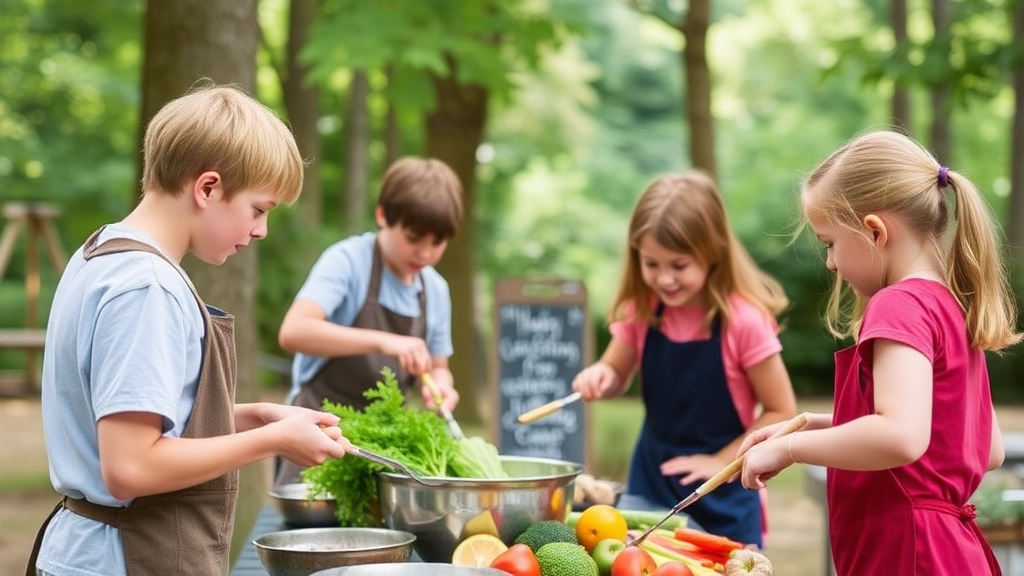
Ever wondered how to pick the perfect cooking summer camp for your kid?
You’re not alone.
Choosing the right camp can feel like navigating a maze.
But don’t worry, I’ve got you covered.
Here’s a simple guide to make the process easier.
What’s Your Child’s Skill Level?
First things first, figure out where your child stands in their cooking journey.
Are they just starting out, or do they already know how to whip up a mean spaghetti bolognese?
Beginner Camps:
- Focus on basic skills.
- Simple recipes.
- Lots of supervision.
Intermediate Camps:
- More complex recipes.
- Introduction to different cuisines.
- Some independence in the kitchen.
Advanced Camps:
- Advanced techniques.
- Creative freedom.
- Maybe even some competition.
Age Matters
Next up, age groups.
You don’t want your 8-year-old stuck with a bunch of teenagers, right?
Young Kids (5-10 years):
- Fun and simple.
- Lots of hands-on activities.
- Safety first.
Tweens (11-13 years):
- More independence.
- Slightly complex recipes.
- Team activities.
Teens (14-18 years):
- Advanced skills.
- Leadership roles.
- Potential career insights.
Location, Location, Location
Where’s the camp located?
Close to home or in a different city?
Local Camps:
- Easier commute.
- Less homesickness.
- Familiar environment.
Out-of-Town Camps:
- New experiences.
- Independence.
- Broader network.
Daily Activities and Schedules
What does a typical day look like?
You want a balanced mix of cooking, learning, and fun.
Morning:
- Basic skills and safety.
- Recipe introduction.
Afternoon:
- Hands-on cooking.
- Team challenges.
Evening:
- Clean-up.
- Reflection and feedback.
Benefits of Attending
Why should you even consider a cooking camp?
Here’s why:
- Life Skills: Cooking is a life skill. Period.
- Confidence: Boosts self-esteem.
- Teamwork: Working in a kitchen teaches teamwork.
- Creativity: Encourages creativity and experimentation.
Safety and Supervision
Safety is non-negotiable.
Make sure the camp has:
- Qualified Instructors: Certified and experienced.
- First Aid: Always on hand.
- Supervision: Adequate staff-to-child ratio.
Costs and Scholarships
Cooking camps can be pricey.
But don’t let that stop you.
Look for:
- Early Bird Discounts: Book early and save.
- Scholarships: Many camps offer financial aid.
- Payment Plans: Spread the cost over several months.
What to Pack
Packing can be a headache.
Here’s a quick list:
- Apron: Keeps clothes clean.
- Chef’s Hat: Adds fun and keeps hair out of food.
- Notebook: For recipes and notes.
- Comfortable Shoes: Lots of standing.
- Water Bottle: Stay hydrated.
Success Stories
Still on the fence?
Hear it from those who’ve been there:
Jane, 12: “I learned to make sushi and now I’m the family chef!”
Tom, 15: “The camp inspired me to consider a culinary career.”
Safety and Supervision in Cooking Summer Camps
Ever worry about safety when sending your kid to a cooking summer camp? You’re not alone. As a parent, I get itâsafety in cooking camps is a big deal. Let’s break down how these camps keep things safe and sound.
Real Concerns
- “What if my child gets hurt?” – Cooking involves sharp tools and hot surfaces. It’s a valid concern.
- “How do they ensure supervision?” – You want to know someone’s always watching.
How Camps Keep It Safe
- Qualified Staff: Most camps hire trained chefs and educators who know their stuff. They’ve got experience in both cooking and handling young learners.
- Safety Protocols: Camps usually have strict rules:
- Knife Skills: Kids are taught proper techniques to handle knives safely.
- Heat Awareness: They learn how to deal with ovens and stoves without getting burnt.
- Supervised Activities: It’s not just about cooking; it’s about doing it under a watchful eye. Most camps maintain a low camper-to-staff ratio to ensure every child gets attention.
- First Aid Ready: Accidents can happen, but camps are prepared. They usually have first aid kits on hand and staff trained in basic first aid.
- Equipment Checks: Regular checks ensure that all equipment is in safe working order.
Why It Matters
Safety isn’t just about avoiding injuries. It’s about building confidence. When kids feel safe, they’re more likely to try new things and learn.
Tips for Parents
- Ask Questions: Before signing up, ask about their safety measures.
- Visit the Camp: If possible, take a tour to see the facilities and meet the staff.
- Check Reviews: Look for testimonials from other parents about their experiences.
For more information on ensuring a safe and fun camp experience, check out our guide on Summer Camp Activities: Fun and Learning Combined and get tips on what to pack for summer camp to keep your child prepared.
Costs and Scholarships for Cooking Summer Camps
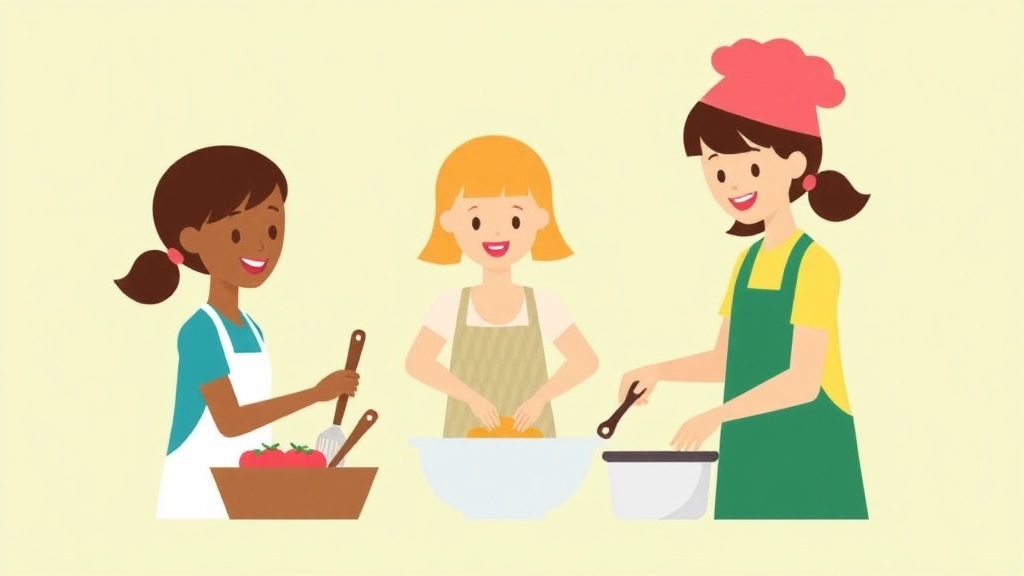
Alright, let’s talk about the elephant in the room: costs.
How much is this going to set you back?
And, can you get a scholarship to ease the financial burden?
What Are the Costs?
Cooking summer camps can range from affordable to “I need a second mortgage” expensive.
Here’s a rough breakdown:
- Day Camps: Typically, these cost between £100 to £500 per week.
- Residential Camps: These can range from £500 to £2000 per week, depending on the amenities and location.
What’s Included in the Price?
Before you balk at the numbers, let’s see what you’re getting:
- Ingredients and Supplies: Fresh produce, meats, spices – all included.
- Professional Instruction: Learn from top-tier chefs.
- Meals: Breakfast, lunch, and sometimes dinner.
- Activities: Beyond cooking – think excursions, guest speakers, and more.
Scholarships and Financial Aid
Worried about the cost?
Don’t sweat it.
Many camps offer scholarships and financial aid.
Here’s how to snag one:
- Early Application: The sooner you apply, the better your chances.
- Merit-Based Scholarships: Show off your kid’s cooking skills or academic achievements.
- Need-Based Aid: Provide financial documents to prove your need.
Real Talk: Is It Worth It?
Let me break it down.
Investing in a cooking summer camp isn’t just about learning to cook.
It’s about life skills, confidence, and maybe even setting the stage for a future career.
Pro Tips for Saving Money
- Early Bird Discounts: Sign up early to get a discount.
- Group Rates: Enroll with friends for a group discount.
- Local Camps: Sometimes, local options are cheaper and just as good.
What to Pack for a Cooking Summer Camp
Alright, let’s cut to the chase. You’re prepping for a cooking summer camp and you’re wondering, “What the heck do I pack?” Don’t sweat it; I’ve got you covered. Packing for a cooking camp isn’t rocket science, but you do need to think ahead. Let’s break it down so you can focus on what really mattersâhaving a blast and learning to cook like a pro.
Essential Items You Need to Bring
First things first, you need the basics. Here’s a quick list of must-haves:
- Comfortable Clothing: You’re going to be on your feet a lot, so pack clothes that are comfy and easy to move in. Think t-shirts, shorts, and maybe a few pairs of jeans.
- Closed-Toe Shoes: Safety first, folks. You don’t want to drop a knife on your foot. Trainers or any sturdy, closed-toe shoes will do the trick.
- Aprons: Some camps provide these, but it’s always a good idea to bring a couple of your own. Keeps your clothes clean and looks pro.
- Water Bottle: Stay hydrated, especially if the kitchen gets hot. A reusable water bottle is a must.
- Notebook and Pen: You’ll be learning a ton of new recipes and techniques. Jotting them down helps you remember and practice later.
Kitchen Gear: What to Expect
Most cooking camps provide the necessary kitchen equipment, but it doesn’t hurt to check with them beforehand. Here are a few items you might want to bring just in case:
- Chef’s Knife: If you’re serious about cooking, having your own knife can make a world of difference. Just make sure it’s safely packed.
- Measuring Cups and Spoons: Sometimes it’s easier to have your own set, especially if you’re used to them.
- Cutting Board: A small, portable cutting board can be handy.
Personal Items and Extras
Let’s not forget the personal stuff. You’re not just cooking; you’re living there for a bit.
- Toiletries: Toothbrush, toothpaste, shampoo, soapâthe usual suspects.
- Sunscreen and Bug Spray: If your camp has outdoor activities, you’ll need these.
- Comfort Items: A favourite pillow, a good book, or anything that makes you feel at home.
- Snacks: While you’ll be cooking a lot, having some of your favourite snacks can be a lifesaver.
Pro Tips for Packing
Here are some insider tips to make your packing even smoother:
- Label Everything: Trust me, you don’t want to lose your stuff. Use a permanent marker to label your gear.
- Pack Light: You don’t need to bring your entire wardrobe. Stick to essentials and mix-and-match outfits.
- Check the Camp’s List: Most camps provide a packing list. Double-check it to make sure you’re not missing anything important.
Real Talk: Stories from Past Campers
Let me share a quick story. A buddy of mine went to a cooking camp last summer. He forgot to pack an apron and ended up with tomato sauce on every shirt he brought. Lesson learned: don’t skip the essentials. Another camper I know brought their own chef’s knife and said it made the whole experience way better. They felt more confident and comfortable in the kitchen.
For more tips on packing for your summer adventure, check out our ultimate packing guide. And if you’re curious about other camp activities, our fun and engaging activities guide has you covered!
Success Stories and Testimonials from Past Campers
Ever wondered if a cooking summer camp is worth it?
I mean, who doesn’t want to whip up a killer meal, right?
But, is it really worth the time and money?
Let’s dive into some success stories and testimonials from past campers.
These real-life experiences might just answer your burning questions.
From Novice to Pro
Take Jamie, for example.
Jamie started with zero cooking skills.
Couldn’t even boil an egg without setting off the fire alarm.
But after a summer at camp?
Jamie’s now the go-to chef for family dinners.
Here’s what Jamie had to say:
âI went from knowing nothing to cooking a three-course meal. The camp gave me confidence and skills I never thought I’d have.â
Boosting Confidence
Then there’s Sarah.
Sarah was always shy and hesitant in the kitchen.
She’d get flustered just following a recipe.
Post-camp, she’s a different person.
âThe instructors were so patient and encouraging. I learned to take risks and experiment. Now, cooking is my happy place.â
Making Lifelong Friends
Let’s not forget about the social side.
Liam was worried he wouldn’t fit in.
But guess what?
âI made friends for life. We bonded over our love for food, and now we have our own little cooking club.â
Real Skills, Real Fast
Cooking camps aren’t just about fun.
They’re about real, tangible skills.
Emma came back with a portfolio of dishes.
âI never thought I’d be able to make sushi or bake a soufflé. Now, I can do both, and more. It’s opened up so many opportunities for me.â
Parents’ Perspective
And it’s not just the campers who notice the change.
Parents see it too.
âMy son came back more independent and responsible. He even cooks dinner for us once a week now. It’s been a game-changer.â
Why It Matters
So, why do these stories matter?
Because they show you what’s possible.
They show you that a cooking summer camp isn’t just a fun way to spend the summer.
It’s an investment in yourself.
Your Turn
Feeling inspired?
Ready to become the next success story?
Check out our other sections on what to pack, and more.
Your culinary adventure awaits.
And who knows?
Maybe next summer, you’ll be the one sharing your success story.
Ready to get cooking? Explore some top features of summer camp buildings that make your stay even better.
FAQs on Cooking Summer Camps
What age groups do cooking summer camps cater to?
Cooking summer camps cater to a wide range of age groups, from young chefs aged 5-8, junior cooks aged 9-12, to teen gourmets aged 13-17. Each age group has tailored activities and skill-building exercises to match their developmental stage.
Are there different skill levels available at cooking summer camps?
Yes, cooking summer camps offer programs for beginners, intermediate, and advanced young chefs. Beginners focus on basic skills and fundamentals, intermediates build on basic knowledge with more independence, and advanced participants master intricate recipes and take on leadership opportunities.
What does a typical day at a cooking summer camp look like?
A typical day includes a morning routine with breakfast and basic lessons, midday activities like lunch prep and feedback sessions, afternoon workshops such as pasta-making or sushi rolling, and an evening wrap-up with dinner preparation and reflection time. Weekends often feature special events like field trips and cooking competitions.
How do I choose the right cooking summer camp for my child?
Consider your child’s skill level, age group, and the camp’s location. Look for camps that offer a balanced mix of cooking, learning, and fun. Ensure the camp has qualified instructors, appropriate safety measures, and a schedule that keeps your child engaged.
What are the benefits of attending a cooking summer camp?
Attending a cooking summer camp helps children develop life skills, boosts their confidence, teaches teamwork, and encourages creativity and experimentation. It’s also a great way for them to explore potential career interests in the culinary field.
How much do cooking summer camps typically cost?
Costs can vary widely. Day camps usually range from £100 to £500 per week, while residential camps can cost between £500 to £2000 per week. The price often includes ingredients, professional instruction, meals, and various activities.
Are there scholarships or financial aid available for cooking summer camps?
Yes, many camps offer scholarships and financial aid. These can be merit-based, need-based, or available to early applicants. It’s advisable to apply early and provide any necessary documentation to increase your chances of receiving aid.
What should my child pack for a cooking summer camp?
Essential items include an apron, chef’s hat, notebook for recipes and notes, comfortable shoes, and a water bottle. These items help keep your child prepared and comfortable throughout their camp experience.
Are there any success stories from cooking summer camps?
Absolutely! Many campers leave with newfound skills and confidence. For instance, a 12-year-old camper named Sarah learned to make her first souffle and recreated it for her family, while a teen named Jake gained enough confidence to cook a three-course meal after attending camp.
What are some pro tips for saving money on cooking summer camps?
Look for early bird discounts, group rates, and consider local camps which might be more affordable. Many camps also offer payment plans to spread the cost over several months.
References
-
Cooking Summer Camps – CampResource
-
Kids Cook Real Food – Cooking Camps
-
ParentMap – Summer Camps: Cooking

